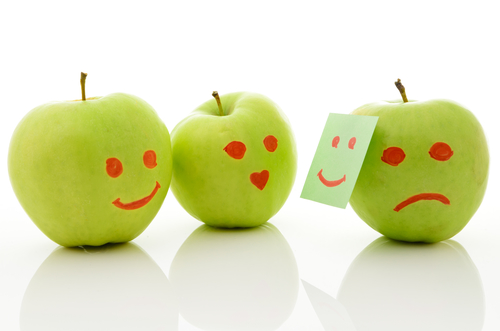
7 Tips for Getting the Better of Depression
Something has happened to you that has gotten you down?
Has this feeling come over you lately? Does it feel “alien” to how you usually are?
There is a name for that. Read on.
Situational Depression: When Life Gets You Down
Also called adjustment disorder, situational depression is triggered by a stressful or life-changing event, such as job loss, the death of a loved one, trauma — even a bad breakup.
Situational depression is about three times more common than major depression, and medications are rarely needed — that’s because it tends to clear up over time once the event has ended. However, that doesn’t mean it should be ignored: Symptoms of situational depression may include excessive sadness, worry, or nervousness, and if they don’t go away, they may become warning signs of major depression. (Chris Iliades, MD | Medically reviewed by Pat F. Bass III MD, MPH)
Here are 7 of 10 Natural Depression Treatments previously, we focused on the other 3: (See, “3 Steps to Defeat Dysthymia (depression)”, Counselingondemand.com)
Being depressed can make you feel helpless. You’re not. There’s a lot you can do on your own to fight back.
These tips can help you feel better — starting right now.
- Set goals.When you’re depressed, you may feel like you can’t accomplish
anything. That makes you feel worse about yourself. To push back, set daily goals for yourself.
“Start very small,” says Ian Cook, MD. Psychiatrist and director of the Depression Research Clinic Program at UCLA. “Make your goal something that you can succeed at, like doing the dishes every other day.”
As you start to feel better, you can add more challenging daily goals.
- Exercise.It temporarily boosts feel-good chemicals called endorphins. It may also have long-term benefits for people with depression. Regular exercise seems to encourage the brain to rewire itself in positive ways, Cook says.
How much exercise do you need? You don’t need to run marathons to get a benefit. Just walking a few times a week can help.
- Eat healthy.There is no magic diet that fixes depression. It’s a good idea to watch what you eat, though. If depression tends to make you overeat, getting in control of your eating will help you feel better.
Although nothing is definitive, Cook says there’s evidence that foods with omega-3 fatty acids (such as salmon and tuna) and folic acid (such as spinach and avocado) could help ease depression.
- Get enough sleep.Depression can make it hard to get enough shut-eye, and too little sleep can make depression worse.
What can you do? Start by making some changes to your lifestyle. Go to bed and get up at the same time every day. Try not to nap. Take all the distractions out of your bedroom — no computer and no TV. In time, you may find your sleep improves.
- Take on responsibilities. When you’re depressed, you may want to pull back from life and give up your responsibilities at home and at work. Don’t. Staying involved and having daily responsibilities can help you maintain a lifestyle that can help counter depression. They ground you and give you a sense of accomplishment.
If you’re not up to full-time school or work, that’s fine. Think about part-time. If that seems like too much, consider volunteer work.
- Challenge negative thoughts.In your fight against depression, a lot of the work is mental — changing how you think. When you’re depressed, you leap to the worst possible conclusions.
The next time you’re feeling terrible about yourself, use logic as a natural depression treatment. You might feel like no one likes you, but is there real evidence for that? You might feel like the most worthless person on the planet, but is that really likely? It takes practice, but in time you can beat back those negative thoughts before they get out of control.
- Check with your doctor before using supplements.“There’s promising evidence for certain supplements for depression,” Cook says. Those include fish oil, folic acid, and SAMe. But more research needs to be done before we’ll know for sure. Always check with your doctor before starting any supplement, especially if you’re already taking medications. (By Griffin, WebMD Feature, Reviewed by Joseph Goldberg, MD)
In most cases, a complete treatment plan for dealing with depression includes psychotherapy, also called “talk therapy.” The therapist, a psychiatrist, psychologist, or other mental health professional, can help you overcome depression. (Ibid.@http://www.everydayhealth.com/depression/treating)
This is where online Counseling on Demand comes in. You need not go through this alone. With our support, you can get through these times.
We can help. You needn’t leave your favorite/private place. Nor must you wait for an appointment. We are always there for you. You can begin in 24 hours or less.
You may contact us now. Your first consultation is free.
Call, email, text or Skype us on your computer, cell phone or tablet- even on your E-book.
Follow us on social media. Check out our chat line.
We are just a click away.